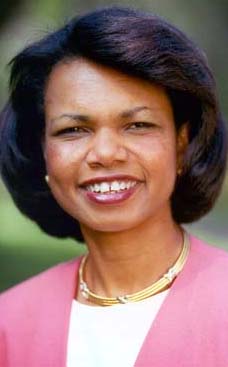2006.03.05: March 5, 2006: Headlines: COS - Senegal: The Rockingham News: Rebecca Perkins teaches a class in Senegal as a Peace Corps Volunteer
Peace Corps Online:
Directory:
Senegal:
Peace Corps Senegal :
The Peace Corps in Senegal:
2006.03.05: March 5, 2006: Headlines: COS - Senegal: The Rockingham News: Rebecca Perkins teaches marketing in Senegal as a Peace Corps Volunteer :
2006.03.05: March 5, 2006: Headlines: COS - Senegal: The Rockingham News: Rebecca Perkins teaches a class in Senegal as a Peace Corps Volunteer
Rebecca Perkins teaches a class in Senegal as a Peace Corps Volunteer

Iíve tricked them into forgetting this is class. The kids are snapping their fingers into the air, telling me how hard it is here, how the families are so big, how if you donít give money to someone theyíll say youíre evil - a significant element in such a community-based place. I ask them how the game - or a real business - would have played out if someone came asking for money throughout. Or if they had bought more soda. They knew these answers as well. But in a slightly frustrated defense, we came to, "But itís not the same as it is in your white countries."
PCOL: Which story is best?
Rebecca Perkins teaches a class in Senegal as a Peace Corps Volunteer
African mission: Big rewards, small steps
By Rebecca Perkins
Complete Business Index
Caption: Stratham resident Rebecca Perkins teaches a class in marketing, calculating profits and financial planning as a Peace Corps volunteer in Senegal.
Courtesy photo.
[Excerpt]
Recently, I taught a class to high school students, an audience that ranges from about 17 to 24. (Here, you have to pass an exam every school year to advance, and you only get two tries. High school is an elite class.) The lucky will continue to university, and the rest will just finish school and try to start their lives. We played the same game, and the second time they got it and finished with plenty of money. As we wound down that day, we had a few minutes left, so I sat down on the table at the front of the class while arranging the last bills.
"So, who won?"
Hoops and hollers, a couple begrudging acknowledgments through smiles.
"Well, what did you do? What was your strategy?"
"We bought as much stuff to sell as we could afford."
"OK, good. Does anyone know the name for this?"
Hesitation. A raised finger: "Investment."
"Good!" I write on the board, Investissement. "Can you explain what that is, more specifically?"
"When ... you spend a bunch of money on the business."
"Good, but thereís one piece missing. Anyone have ideas?" Thirteen thinking faces. "Where does this money youíre spending come from? Why do you have money to buy stuff for the business?"
Bing, one kid gets it.
"Itís your profit. You made a profit, and you spend it on your business."
"Great!" I say. I write this on the board, and give them a minute to write it down.
"What usually happens when someone has some extra money in Senegal? You go out and buy something to resell?"
They know I know the answer to this.
"We buy soda."
"Or clothes."
"Or someone asks us for some."
Iíve tricked them into forgetting this is class. The kids are snapping their fingers into the air, telling me how hard it is here, how the families are so big, how if you donít give money to someone theyíll say youíre evil - a significant element in such a community-based place. I ask them how the game - or a real business - would have played out if someone came asking for money throughout. Or if they had bought more soda. They knew these answers as well. But in a slightly frustrated defense, we came to, "But itís not the same as it is in your white countries."
"I know itís not. We all hoard our money till the end of time, thinking weíll need it in our grave, right?"
Laughs to get us back on solid ground, but Iíve taken away their ace.
"Why should it be the same here? You have your own culture. But should we just throw our hands in the air?"
Acknowledging smiles at the desks, waiting faces.
"Youíve seen successful businesses here. What do you think they do?"
"Well, we donít know." A coy smile. "Thatís why weíre here."
I smile as well. "OK, then. Shall we figure it out?"
Lots of nods.
"Iíll see you next week."
Editorís note: Stratham resident Rebecca Perkins, a 2000 graduate of Phillips Exeter Academy and a 2004 graduate of Dartmouth College, is working as a Peace Corps volunteer in Senegal. Perkins works and learns as a small enterprise development volunteer. The following is a story she sent Herald Sunday about her experience. We think it provides a fascinating glimpse into some of the more hidden corners of the global marketplace. She has been admitted to Cornell Law School, Class of 2010, and plans to study business law when she returns to the United States
When this story was posted in March 2006, this was on the front page of PCOL:





Peace Corps Online The Independent News Forum serving Returned Peace Corps Volunteers
 | March 1, 1961: Keeping Kennedy's Promise
On March 1, 1961, President John F. Kennedy issues Executive Order #10924, establishing the Peace Corps as a new agency: "Life in the Peace Corps will not be easy. There will be no salary and allowances will be at a level sufficient only to maintain health and meet basic needs. Men and women will be expected to work and live alongside the nationals of the country in which they are stationed--doing the same work, eating the same food, talking the same language. But if the life will not be easy, it will be rich and satisfying. For every young American who participates in the Peace Corps--who works in a foreign land--will know that he or she is sharing in the great common task of bringing to man that decent way of life which is the foundation of freedom and a condition of peace. " |
 | The Peace Corps Library
The Peace Corps Library is now available online with over 40,000 index entries in 500 categories. Looking for a Returned Volunteer? Check our RPCV Directory. New: Sign up to receive PCOL Magazine, our free Monthly Magazine by email. Like to keep up with Peace Corps news as it happens? Sign up to recieve a daily summary of Peace Corps stories from around the world. |
 | Paid Vacations in the Third World?
Retired diplomat Peter Rice has written a letter to the Wall Street Journal stating that Peace Corps "is really just a U.S. government program for paid vacations in the Third World." Director Vasquez has responded that "the small stipend volunteers receive during their two years of service is more than returned in the understanding fostered in communities throughout the world and here at home." What do RPCVs think? |
 | RPCV admits to abuse while in Peace Corps
Timothy Ronald Obert has pleaded guilty to sexually abusing a minor in Costa Rica while serving there as a Peace Corps volunteer. "The Peace Corps has a zero tolerance policy for misconduct that violates the law or standards of conduct established by the Peace Corps," said Peace Corps Director Gaddi H. Vasquez. Could inadequate screening have been partly to blame? Mr. Obert's resume, which he had submitted to the Peace Corps in support of his application to become a Peace Corps Volunteer, showed that he had repeatedly sought and obtained positions working with underprivileged children. Read what RPCVs have to say about this case. |
 | Why blurring the lines puts PCVs in danger
When the National Call to Service legislation was amended to include Peace Corps in December of 2002, this country had not yet invaded Iraq and was not in prolonged military engagement in the Middle East, as it is now. Read the story of how one volunteer spent three years in captivity from 1976 to 1980 as the hostage of a insurrection group in Colombia in Joanne Marie Roll's op-ed on why this legislation may put soldier/PCVs in the same kind of danger. Latest: Read the ongoing dialog on the subject. |
 | PC establishes awards for top Volunteers
Gaddi H. Vasquez has established the Kennedy Service Awards to honor the hard work and service of two current Peace Corps Volunteers, two returned Peace Corps Volunteers, and two Peace Corps staff members. The award to currently serving volunteers will be based on a demonstration of impact, sustainability, creativity, and catalytic effect. Submit your nominations by December 9. |
 | Friends of the Peace Corps 170,000 strong
170,000 is a very special number for the RPCV community - it's the number of Volunteers who have served in the Peace Corps since 1961. It's also a number that is very special to us because March is the first month since our founding in January, 2001 that our readership has exceeded 170,000. And while we know that not everyone who comes to this site is an RPCV, they are all "Friends of the Peace Corps." Thanks everybody for making PCOL your source of news for the Returned Volunteer community. |
Read the stories and leave your comments.

Some postings on Peace Corps Online are provided to the individual members of this group without permission of the copyright owner for the non-profit purposes of criticism, comment, education, scholarship, and research under the "Fair Use" provisions of U.S. Government copyright laws and they may not be distributed further without permission of the copyright owner. Peace Corps Online does not vouch for the accuracy of the content of the postings, which is the sole responsibility of the copyright holder.
Story Source: The Rockingham News
This story has been posted in the following forums: : Headlines; COS - Senegal
PCOL31917
54















